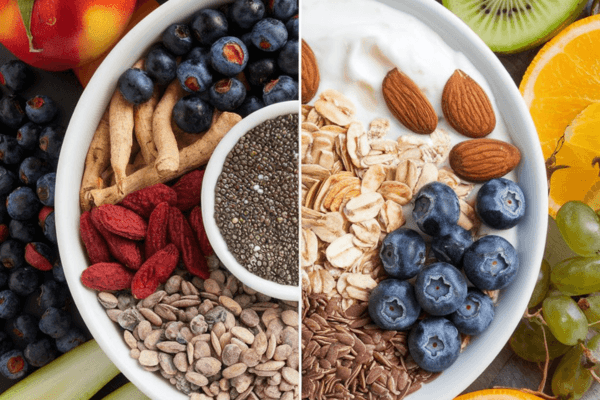Creatine as an ergogenic aid
Needless to say, creatine is a popular ergogenic aid (a substance which improves sports performance). Studies have shown that the consumption of creatine supplements can help improve muscle concentration, exercise performance, training and adaptation.
Role of creatine in the body
- Creatine (methylguanidine-acetic acid) is synthesised in the body by the kidneys and liver through reactions involving arginine, glycine and methionine. Creatine can be obtained from external sources such as red meat, and seafood or as a dietary supplement.
- Creatine is found in the skeletal muscle (~95%) and the remaining is present in the brain and the testes (~5%). ⅔ of the muscle creatine is present as phosphocreatine. The remaining creatine is present as free creatine in the body.
- Half the daily creatine requirement can be obtained via the diet. Ex. half a pound of beef and salmon can provide 1-2g of creatine.
- The total creatine pool in an average 70 kg human is 120 mmol/kg of dry mass. However, the maximum creatine pool storage is 160 mmol/kg.
- 1-2% of creatine is continuously degraded by the body and needs to be replenished. A daily intake of 1-3g of creatine is essential for replenishment.
Exercise benefits of creatine
- Creatine supplements can help enhance recovery after intense training. A study revealed that simultaneous consumption of 47-97g of carbohydrates and 90g of protein improved creatine retention.
- Creatine may help prevent musculoskeletal injury, dehydration and muscle cramping.
- Creatine may improve tolerance to exercise in heat by promoting short-term fluid retention and intracellular water.
- Creatine may enhance rehabilitation after an injury by preventing muscle atrophy due to immobilisation.
- Creatine supplementation may have neuroprotective effects.
Non-exercise medical benefits of creatine
Several medical studies have revealed that creatine may provide potential therapeutic benefits:
- Creatine synthesis deficiencies – Due to inborn errors of amino acid metabolism, some individuals may have a diminished ability to synthesise creatine endogenously. This may result in autism, mental retardation, speech delay, movement disorders etc. Consuming creatine may help improve or stabilise symptoms.
- Neurodegenerative diseases – Several diseases such as Parkinson’s disease, Huntington’s disease etc. A few studies revealed that creatine may delay the progression of such diseases. It can also act as an antidepressant and have a positive effect on neurodegenerative diseases.
- Ischaemic heart disease – Creatine and phosphocreatine play important roles in ischaemic events. A review revealed that creatine when used along with cardioplegic solutions may help treat and prevent ischemia related events.
- Ageing – Creatine may help lower cholesterol levels, reduce fat accumulation and homocysteine levels, glycaemic levels, improve muscle strength and muscle mass etc.
- Pregnancy – Though the use of creatine will depend on the foetus, creatine may be beneficial during pregnancy. This is because the foetus is dependent on the maternal supply of creatine via the placenta. Due to the body’s high demand for creatine during pregnancy, maternal supplementation of creatine may help foetal growth, development, survival rate and health.
Understanding common myths about creatine
A study revealed that:
- Creatine is not an anabolic steroid.
- Creatine may not always cause water retention.
- There isn’t sufficient evidence to understand if there is a link between creatine and baldness.
- Creatine use may not always cause muscle cramping.
- Creatine may not need a loading phase.
- Creatine may be beneficial for women of different life stages.
- Creatine monohydrate may be more effective when compared to other forms.
Are creatine supplements really necessary?
- Creatine supplements are generally considered safe. They do not usually have adverse effects when consumed within the recommended dose. However, it is always suggested to speak to your doctor to understand if you really require creatine and which dosing protocol you must follow.
- The recommended dose of creatine is 3-5g or 0.1g/kg body weight. Some side effects which one may observe are: Increased body mass, gastrointestinal disturbances, muscular cramps, water retention, liver and kidney dysfunction. Always ensure you regularly monitor your blood parameters to understand if you have any abnormal reactions during oral creatine supplementation.
Mayuri
Dietetic Researcher, Simplyweight













